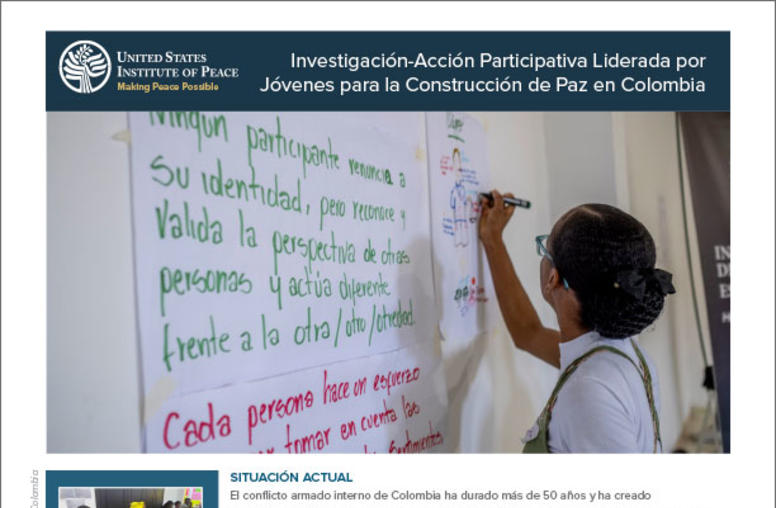Understanding Colombia’s Conflict through the Lens of Jesús Abad Colorado
Jesús Abad Colorado and María Belén Sáez Launch their Edited Photography Volume, “The Witness”
Renowned Colombian photographer Jesús “Chucho” Abad Colorado has spent the last 30 years documenting the atrocities of his country’s armed conflict, the faces of its victims and the related damage to its diverse and rich ecosystems. María Belén Sáez de Ibarra, director of the Center for Cultural Heritage at Colombia’s National University, curated this first series of photography books which tell the stories of thousands of victims of the ongoing armed conflict. The series, collectively titled “The Witness,” complements both his permanent exhibit in Bogotá and his Netflix documentary of the same name
English
Spanish
This edited volume comes at a critical moment for Colombia’s long-standing memory and truth-telling processes. The country’s Truth Commission recently released their final report, and the Special Jurisdiction of Peace has advanced on important prosecutions against military officers and former FARC guerilla commanders. Meanwhile, renewed peace negotiations with remaining armed groups, including the National Liberation Army (ELN), have brought greater attention to the suffering of communities afflicted by continued armed conflict. The stories of victims — their faces, tragedies and resilience — will continue to be a part of Colombia’s path toward peace and reconciliation.
On October 13, USIP, the Washington Office on Latin America, Colombia’s National University and the Atlantic Council hosted the launch of “The Witness,” featuring reflections from Abad and Sáez on the human toll of armed conflict, the deep scars that violence creates on the environment, the resilience of victims, and the voices for peace. A reception followed the conversation.
Note: This event will be hosted in Spanish, with simultaneous English interpretation available both in-person at USIP’s headquarters and as part of the online livestream.
Take part in the conversation on Twitter using #ElTestigo.
Speakers
Camila Hernandez, opening remarks
Associate Director, Adrienne Arsht Latin America Center, Atlantic Council
Jesús Abad Colorado
Colombian Photographer
María Belén Saez de Ibarra
Curator and Director, Center for Cultural Heritage, National University of Colombia
Gimena Sánchez-Garzoli, closing remarks
Director for the Andes, Washington Office on Latin America
Tonis Montes, moderator
Program Officer, Latin America Program, U.S. Institute of Peace


